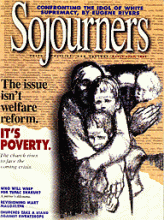The Haymarket Square rebellion of 1886 was a watershed moment in the history of U.S. radicalism. Days after the first May Day demonstration, Chicago police fired into a crowd of striking workers, killing four. In response, the Knights of Labor organized a demonstration at Haymarket Square for May 4. Near the conclusion of that peaceful rally, a police unit marched on the demonstrators. Several workers and police were killed in the resulting melee.
In retrospect, most scholars agree that the labor group was attacked by the Chicago police violently and with no provocation. The threat of a powerful movement for social change had so catalyzed the elite business elements of the city that a drastic show of force was necessary.
When people invoke the name of Haymarket Square, usually it is with veneration or disgust (depending on ones class). It seems a risk, then, to use Haymarket as a product name. But Verso Press has done just that with its Haymarket Series, which "offers original studies in politics, history, and culture...[that] testify to the living legacy of political activism and commitment for which [the martyrs of the Haymarket uprising] gave their lives."
Central to the argument of three of the authors highlighted by Eugene Rivers is the ideological nature of white supremacy or race inequality. Scholars Manning Marable and Barbara Fields have argued that "race" has no basis in biological or physical reality; race is essentially a notion or concept. These authors demonstrate that race, therefore, must serve some ideological and foundational purpose for it to predominate American history.
Read the Full Article

